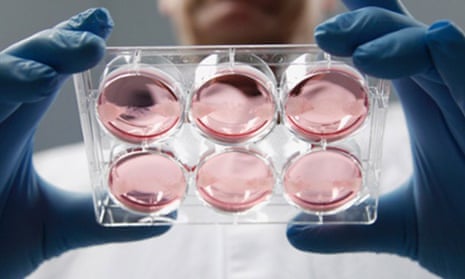The federal court has ruled that a company may patent genetic material that has been extracted from the human body, in a move that may have serious repercussions for the future of medical research in Australia.
Cancer Voices Australia began legal action over patents associated with a gene known as BRCA1 in 2010. Mutated versions of this gene, which women can be born with, have been associated with an increased risk of hereditary breast and ovarian cancers.
“[The patenting of this material] places limits on genetic testing, genetic research and the development of treatments and cures for genetically associated disease,” the Maurice Blackburn lawyer Rebecca Gilsenan said.
“Gene patents are of great concern to the medical research community and to the medical profession. Gene patents stifle innovation.”
In February last year the federal court ruled that genetic material associated with mutated versions of BRCA1, once isolated from the human body, could be patented. Cancer Voices Australia appealed against the decision, but on Friday the full bench of the court upheld the ruling.
The companies involved are US-based Myriad Genetics and Genetic Technologies, which holds the exclusive licence to conduct tests for the mutations in Australia.
The patent lawyer Luigi Palombi, an adjunct professor at Monash University, told Guardian Australia: “This is a bit like patenting oxygen.” He said the companies involved had effectively patented “everything and anything to do with these particular genetic mutations”. They were treating the isolated form of the material as an “invention”, which gave them “enormous control over everything and anything you might ever want to use these materials for”.
Gilsenan said lawyers would now seek leave to appeal to the high court.
“[The] other avenue ... is to lobby the government to change the law.”
Maurice Blackburn began the case on behalf of Yvonne D’Arcy, a Brisbane woman with breast cancer. She is “devastated” but will not stop the fight, according to Gilsenan.
While the case was before the court, the companies chose not to enforce their rights over the BRCA1 patent.
Gilsenan said the companies, which control access to the gene for testing and research, would be subject to “difficult and uncomfortable” public outrage if they tried to impede its wider use.
In June last year the US supreme court “unanimously held that genes are a product of nature and are not patentable subject matter”, Gilsenan said.

Comments (…)
Sign in or create your Guardian account to join the discussion